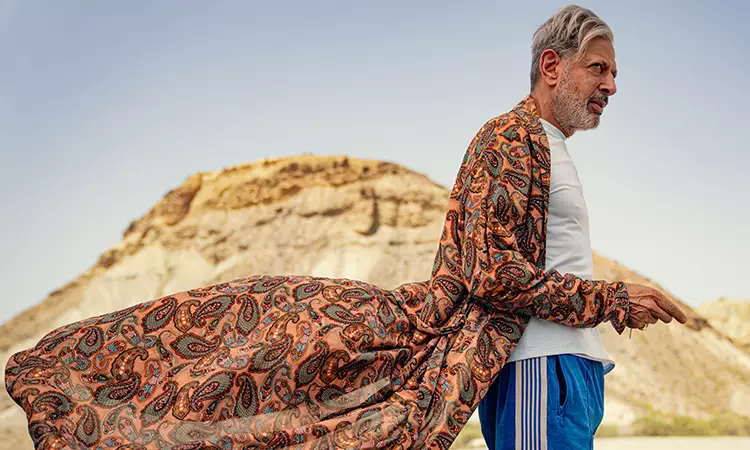In recent years, a noticeable trend has emerged where streaming platforms are diving deep into the realms of mythological narratives. Netflix’s latest series, “Kaos,” is no exception, as it embraces one of humanity’s oldest storytelling traditions—Greek mythology. With other giants like Amazon’s adaptations of Neil Gaiman’s works and Disney+’s revival of “Percy Jackson,” the competition is fierce, but “Kaos” stands out not just for its content but for its unique take on age-old stories. Unlike many adaptations that cling to the original timeline or placement of myth, “Kaos” propels its characters into a vibrant 21st-century landscape, breathing fresh life into familiar figures.
At the heart of this reimagined tapestry lies Zeus, the patriarch of the gods, portrayed by the incomparable Jeff Goldblum. The portrayal presents Zeus not merely as a symbol of divine authority but as a multi-dimensional character plagued by narcissism and paranoia. This depiction creates an immediate disconnect—while he sits atop Mount Olympus eagerly awaiting sacrifices from the human realm, he simultaneously grapples with his waning significance in a modern world that is increasingly dismissive of ancient deities. This narrative choice expertly plays on contemporary themes of relevance and the tenuous grasp that tradition has on a workforce significantly less devoted to the supernatural.
Yet as the drama unfolds, it becomes glaringly clear that while Zeus may demand reverence, the mortals beneath him are awakening to their own stories of dissent. Their growing defiance catalyzes a prophecy that threatens the very structure of the pantheon. The series brings forth a host of legendary figures such as Theseus and Orpheus, interweaving their tales into the fabric of a narrative ripe with both chaos and comedy.
Balancing out Goldblum’s eccentric portrayal is the formidable Janet McTeer as Hera, who deftly captures the complex dynamics of hierarchical relationships among deities. Her sharp and cynical retorts to Zeus’s antics bring a much-needed counterpoint to his capricious nature. This tension—between the all-powerful Zeus and a wise, cynical Hera—creates a fertile ground for exploring themes of power dynamics, gender roles, and interpersonal conflicts. It reveals that even the gods grapple with the same emotional turbulence as humanity, thereby making their struggles relatable to contemporary viewers.
Moreover, introducing Aurora Perrineau’s character, Riddy (Eurydice), distinguishes “Kaos” from traditional portrayals, allowing for a heroine who exhibits agency and depth. Unlike classic adaptations where female characters often remain passive, Riddy becomes an active participant in shaping her fate, leading to a narrative that is both empowering and reflective of modern values surrounding gender roles.
The series is anchored by the narration of Prometheus, played by Stephen Dillane. His omniscient perspective ties the various threads of the storyline together, blending humor with heart and ensuring that the viewer remains engaged throughout the series. Prometheus, a symbol of defiance against divine authority, serves as an ideal figure to navigate this kaleidoscope of myths, illustrating both the creativity and chaos that reside within human nature.
“Kaos” doesn’t shy away from addressing thematic nuances pertinent to modern society. The series takes bold strides in representing sexual fluidity and diversity, presenting a refreshing deviation from conventional narratives that were often limited in scope and representation. By embedding these themes within the mythological framework, “Kaos” not only entertains but also sparks a dialogue surrounding inclusivity and representation.
In essence, “Kaos” is a vibrant celebration of ancient tales recontextualized within the modern zeitgeist. It captures the absurdity, intricacy, and raw emotional essence of Greek mythology while embedding themes that resonate poignantly today. This contemporary adaptation serves as a reminder that while these stories originated thousands of years ago, their relevance endures, continuously shaping and reflecting our collective psyche in delightful and thought-provoking ways.

